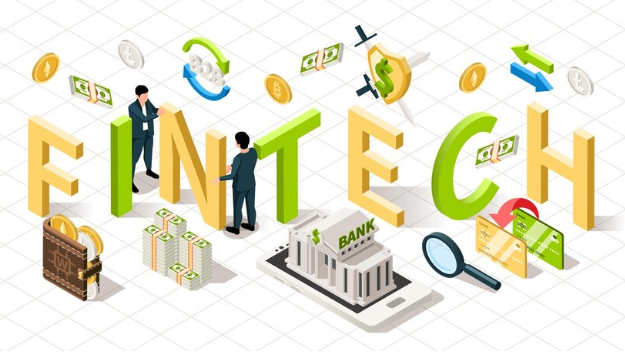AI in FinTech: The Key Trends Shaping the Future of Finance

The fintech industry has always been at the forefront of innovation, constantly transforming how we handle money. One of the most powerful forces driving this change today is artificial intelligence (AI). From enhancing customer service to improving fraud prevention, AI is making a significant impact in the fintech industry. But with so many developments unfolding, what are the emerging trends in AI in the fintech industry, and how are they reshaping the future of finance?
In this article, we’ll explore the current trends in AI in the fintech industry, examine their implications, and highlight both the opportunities and challenges these innovations bring to businesses and consumers alike.
1. AI-Powered Personalization: Crafting Customized Financial Experiences
One of the biggest trends in the AI in fintech industry is the move towards personalization. Consumers now expect financial services that are tailored to their specific needs and behaviors. AI makes it possible for fintech companies to offer highly customized products and services.
1. Customized Financial Products: AI tools analyze customer data such as spending patterns, income levels, and financial goals to recommend products and services that match individual needs. Whether it's offering personalized loans or suggesting the right investment options, AI ensures that consumers get exactly what they need.
2. Smart Budgeting and Saving: AI-powered apps can track spending and offer tips to save money, providing users with personalized financial advice that adapts over time. This makes managing finances easier and more intuitive.
3. AI Chatbots for Better Customer Support: AI chatbots are enhancing customer service by offering real-time assistance 24/7. They can resolve issues, answer questions, and guide users through complex processes, all while learning from every interaction to become even more helpful over time.
As AI continues to shape personalization in the fintech industry, the main challenge lies in data privacy. Financial institutions must prioritize protecting customer information to maintain trust while offering these personalized experiences.
2. AI in Fraud Prevention: Detecting and Preventing Fraud Faster
Fraud detection is a top priority in the AI in fintech industry. As more financial transactions go digital, the risk of fraud grows, making AI an essential tool for safeguarding customer assets.
1. Real-Time Fraud Detection: AI can analyze transactions as they happen, flagging any suspicious activity. By detecting anomalies early, AI helps prevent fraud before it impacts customers.
2. Behavioral Analytics: AI systems monitor a customer’s spending habits and transaction patterns. If something unusual occurs—like a large transaction from an unrecognized location—AI can quickly alert the customer or the institution for verification.
3. Predicting Risk: AI can assess transaction risks by considering factors such as the location, device, and previous activity of the customer. This helps companies take preventative action before fraudulent transactions are completed.
While AI in fraud detection brings many benefits, there are challenges, such as managing false positives. Legitimate transactions may sometimes be flagged incorrectly, causing frustration for customers.
3. Streamlining Operations with AI and Automation
AI in the fintech industry is also being used to improve internal operations. By combining AI with automation, fintech companies can streamline processes, reduce human error, and improve efficiency.
1. Automating Repetitive Tasks: AI automates tasks like data entry and transaction reconciliation, saving time and reducing the chance of mistakes. This allows employees to focus on more valuable tasks that require human expertise.
2. Faster Loan Approvals: AI can quickly analyze a wider range of data to assess creditworthiness, speeding up the loan approval process. By looking at spending habits and transaction history, AI helps make more informed lending decisions.
3. Ensuring Compliance: AI tools can monitor financial transactions and ensure compliance with regulations. This is especially useful in an industry with ever-changing laws and standards, helping companies stay ahead of legal challenges.
Despite its efficiency, integrating AI and automation into existing systems remains a challenge for many fintech firms. Balancing innovation with legacy systems can require significant investment and resources.
4. AI and RegTech: Simplifying Compliance in the Fintech Industry
The regulatory environment in the fintech industry can be complex and constantly changing. AI is being leveraged in regulatory technology (RegTech) to make compliance easier and more efficient.
- Real-Time Monitoring: AI tools can track transactions in real time to ensure they meet regulatory standards. This reduces the need for manual monitoring, saving time and effort for companies.
- Know Your Customer (KYC): AI helps automate the KYC process, allowing companies to verify customer identities quickly and accurately. AI systems can also monitor for signs of fraudulent activity or money laundering.
- Predictive Compliance: AI can analyze data to predict future regulatory challenges, helping companies proactively adjust their processes to remain compliant.
However, adapting AI for compliance across various regions remains a challenge due to the different regulatory frameworks that apply in each jurisdiction.
5. AI in Blockchain: Enhancing Security and Transparency
Blockchain technology, known for its secure and transparent nature, is being enhanced by AI. Combining AI with blockchain is allowing for more secure and efficient systems in fintech.
Improved Security: AI can monitor blockchain transactions to spot fraudulent behavior and improve transaction verification processes, strengthening the security of blockchain systems.
Smart Contracts: AI can optimize smart contracts—self-executing contracts that automatically execute when conditions are met—by making them more responsive and adaptable to changing circumstances.
Blockchain Analytics: AI can analyze large amounts of data on the blockchain to identify trends and patterns. This helps fintech companies make better business decisions based on the data stored on the blockchain.
While AI and blockchain integration offers great potential, challenges exist, especially around the scalability of these systems. AI requires a significant amount of processing power, which can sometimes conflict with the resource-intensive nature of blockchain technology.
If you're looking to integrate these cutting-edge technologies into your business, collaborating with an AI development company can help you navigate the complexities of AI in fintech. They can guide you through the development process, ensuring that your AI-driven solutions are efficient, secure, and tailored to your specific needs.
Conclusion: How AI in the Fintech Industry Will Shape the Future of Finance
The emerging trends in AI in the fintech industry are reshaping the financial landscape in exciting ways. From providing personalized services to improving fraud prevention and automating operations, AI is offering unprecedented opportunities for innovation. However, these advancements come with their own set of challenges, including data privacy concerns, the need for integration with legacy systems, and adapting to complex regulations.
The future of AI in the fintech industry is bright, and as technology continues to evolve, so too will the ways it enhances financial services. Whether it's for improving customer experience, increasing operational efficiency, or ensuring compliance, AI is set to be a driving force in the next chapter of fintech innovation. By staying ahead of these trends, businesses in the fintech industry can not only remain competitive but also provide their customers with the cutting-edge financial services they demand.
Note: IndiBlogHub features both user-submitted and editorial content. We do not verify third-party contributions. Read our Disclaimer and Privacy Policyfor details.







